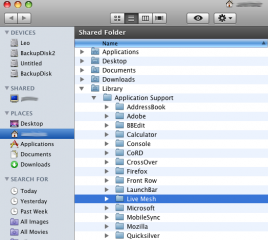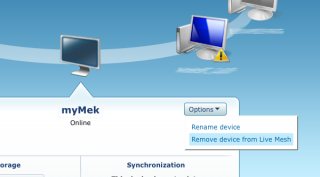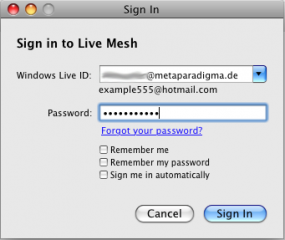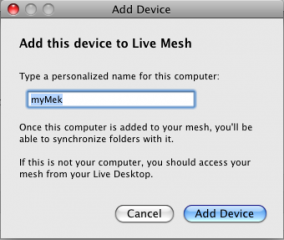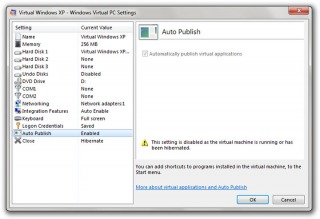In order to fight child pornography, last week’s friday, german internet access providers “Deutsche Telekom”, “Vodafone/Arcor”, “Hansenet/Alice”, “Telefonica/02” signed contracts with the Bundeskriminalamt BKA (Federal Criminal Police Office) to implement technical bans to block access to certain webservers. As exploiting children for sexual abuse is one of the most horrible things we as parents could ever imagine, child pornography surely is a topic that needs to be dealt with.
The Censorship Strategy aka Operation Freedom Fright
The issue here is: the current notion in this censorship fight is emphasizing the danger of “opportunity criminals becoming addictive to child porn through spam mails” said Federal Minister for Family Affairs Ursula von der Leyen (1). Ursula von der Leyen’s strategy now is to block access to those webservers providing child pornography.
You see the tiny problem here. Or as the the german Gesellschaft für Informatik – G.I. (Society for Computer Sciences) writes in a press release (german only), they seriously doubt that blocking websites will have an impact on the distribution of child pornography at all. The next problem is: who decides which webserver will be added to this blocklist? The answer is the BKA, no judge will be consulted. We currently tend to name this “operation freedom fright”.
This comes only two weeks after the german wikileaks.de page has been removed from the internet by german authorities, because wikileaks.de released parts of an australian blocklist. Besides illegal child pornography the australian blocklist contained many websites with political information. According to the world wide wikileaks.org page Germany and China are the only countries who want to block the complete wikileaks pages.
What technically will be done
To maintain all our freedom on the internet the BKA will send blocklists to the providers every day. When trying to access a website that is on the list, the user will instead receive a stop sign that tells him, he has tried to access a site containing illegal material. People accessing the stop sign are getting logged and their IP addresses are sent to the BKA.
Technically this blockage will be realized through DNS poisoning – meaning: resolving of internet addresses like porn.i-like.com will not be resolved into 123.45.678.901, but instead into the IP address where the stop sign will be shown.
It does not need a genius to see that this censorship technique can and will be defeated very easy. And thus the efficiency will most likely be quite marginal. Youtube.com by now provides a 27sec running video that shows the necessary steps to use a foreign DNS server that does not block certain websites.
So blocking access to servers providing illegal material is like building a wall around those servers without doing any harm to the servers themselves. You may ask if this is an efficient strategy for fighting child pornography?
What should be done
The G.I. says this is far away from being an efficient strategy, because in contrast to the distribution of bootlegged cinema movie copies or music, child pornography gets distributed via websites only in an estimated few cases. “In fact child pornography cannot be accessed directly on the internet. The addresses are only known to insiders. The addresses are accessed only by closed groups of users via peer2peer networks.” (2)
Almost the same is reported by the german c’t Magazin (german only). The c’t Magazin interviewed a specialized investigator of the Landeskriminalamt Niedersachsen (State Office of Criminal Investigation). He said “Producers of hard child pornography deliver those products only via postal services. The internet is used for communication purposes, but not for transport or distribution.” (3)
Instead of just blocking those sites. The G.I. recommend to prosecute the visitors and the maintainers of such sites at the maximum extend of the law. “Those who commit such crimes to children are not getting caught and convicted by blocking websites” (4).
The c’t Magazin furthermore reported about an experiment conducted by the german Carechild organization. They used a surfaced blacklist from Denmark where a blocking system has already been installed by internet providers. Carechild “used 20 addresses from the surfaced danish blocklist. 17 were hosted in the U.S., 1 in the Netherlands, South Korea and England. Carechild wrote to the abuse-email-addresses of the hosting providers of these servers and asked for removal of the illegal content. The result: 8 U.S. american providers reacted within the first 3 hours after sending the email by shutting down the domains in question. Within a day 16 addresses were no more accessable anymore. For 3 addresses the provider declared either the website does not infringe laws or the website’s operator could proof ages of the actors.” (5)
You may ask if a blocklist is more efficient then telling the hosting providers of possible abuse?
The German Fear
By saying child porn has to be stopped censoring of information on the internet begins. What are the next steps of the German government? Will this be the second time within 80 years to implement dangerous censorship? Will the government follow the role model of Sweden and Denmark? These countries not only censor access to child pornography but also to sites which offer content that is wished by lobbyists to be not accessable like the PirateBay.org. The german Chaos Computer Club renamed Ursula von der Leyen recently to “Zensursula” (a german mixture of the german word “Zensur” for “censorship” and “Ursula”, her forename).
And media industry’s lobbyists are also prepared here in Germany. Dieter Gorny already said he fully supports Ursula von der Leyen’s approach. “It is all about societal desired regulation on the internet, and protection of intellectual property is also a part of that.” (6) Using the notion societal desired regulation really seems impertinent, as he means the opposite: the media industry’s lobbyists would do everything to add some websites to the BKA blocklist. And this could be the end of freedom to german internet users. In the meantime the Arbeitskreis Zensur (working party censorship) has been setup. They say: the german government “is campaigning for the next election on the back of abused children, they protect wrongdoers, they disregard prosecution and the setup an internet censorship infrastructur under the BKA’s control that is adverse to the Grundgesetz (Basic Constitutional Law of Germany).” (7)
But besides tech magazines even serious newspapers begin to feel there is something strange going on in Germanistan. Die Zeit reports that the current draft law sadly is in no way democratic. As “weather a judge, nor a parliamentary control comission, nor a data protection commissioner check the blocklists. The BKA will be investigator, plaintiff, and judge in one person. (..) No omnipotence for the BKA.” (8)
The c’t Magazin writes “it is only a matter of time until also radical political positions will be filtered. Then only one thing would be missing to gain a perfect tool for mass censorship: a law that prohibits the circumvention of the blocklists.” (9)
Quotes
(1) cf. TAZ: “Stoppsymbol statt Kinderporno” (accessed April 22, 2009): “Es ist im besten Sinne Prävention, wenn wir die durch Spam-Mails angefixte Gelegenheitstäter davor bewahren, süchtig zu werden”
(2) cf. Gesellschaft für Informatik: “GI fordert ernsthafte Verfolgung von Kinderpornographie” (accessed April 22, 2009): “Tatsächlich kann im Internet nicht direkt auf Kinderpornografie zugegriffen werden. Die Adressen sind meist nur Eingeweihten bekannt und zugegriffen wird hauptsächlich in geschlossenen Benutzergruppen über Peer-to-Peer Netzwerke.”.
(3) cf. c’t Magazin: “Verschleierungstaktik” (accessed April 22, 2009): “Die Erzeuger harter Kinderpornografie beliefern ihre zahlenden Kunden in der Regel über den Postweg. Das Internet dient zwar zur Kommunikation, nicht aber als Transportmedium.”
(4) cf. Gesellschaft für Informatik: “GI fordert ernsthafte Verfolgung von Kinderpornographie” (accessed April 22, 2009): “Sperrungen bewirken nicht, dass diejenigen, die Verbrechen an Kindern begehen, gefasst und verurteilt werden.”
(5) cf. c’t Magazin: “Verschleierungstaktik” (accessed April 22, 2009): “Sie verwendete dazu 20 Adressen aus der im Netz aufgetauchten dänischen Sperrliste. 17 der Seiten waren in den USA gehostet, jeweils eine in den Niederlanden, Südkorea und England. Carechild schrieb an die Abuse-Mail-Adressen der Hostingprovider und bat um Entfernung der Inhalte. Das Ergebnis: acht US-amerikanische Provider haben die Domains innerhalb der ersten drei Stunden nach Versand der Mitteilung abgeschaltet. Innerhalb eines Tages waren 16 Adressen nicht mehr erreichbar, bei drei Websites teilte der jeweilige Provider laut Carechild glaubhaft mit, dass die Inhalte nach augenscheinlicher Prüfung keine Gesetze verletzen oder der Betreiber für die abgebildeten Personen entsprechende Altersnachweise vorlegen konnte.”
(6) cf. c’t Magazin: “Verschleierungstaktik” (accessed April 22, 2009): “Es geht um gesellschaftlich gewünschte Regulierung im Internet, dazu gehört auch der Schutz des geistigen Eigentums.”
(7) cf. Arbeitskreis Zensur (accessed April 23, 2009): “Wahlkampf auf Kosten missbrauchter Kinder, schützt die Täter, vernachlässigt die Strafverfolgung und initiiert eine grundgesetzwidrige Internet-Zensur-Infrastruktur unter Kontrolle des BKA.”
(8) cf. Die Zeit: Keine Allmacht für das BKA (accessed April 22, 2009): “Kein Richter überprüft die Sperrlisten, keine parlamentarische Kontrollkommission, kein Datenschutzbeauftragter. Das BKA ist Ermittler, Ankläger und Richter in einer Person! (..) Keine Allmacht auch nicht für das BKA”
(9) cf. c’t Magazin: “Verschleierungstaktik” (accessed April 22, 2009) “Es dürfte nur noch eine Frage der Zeit sein, bis auch radikale politische Aussagen ausgeblendet werden sollen. Dann fehlt nur noch ein Gesetz, das jedes Umgehen der technischen Sperre unter Strafe stellt, und die Machthabenden hätten ein perfektes Zensurwerkzeug.”






